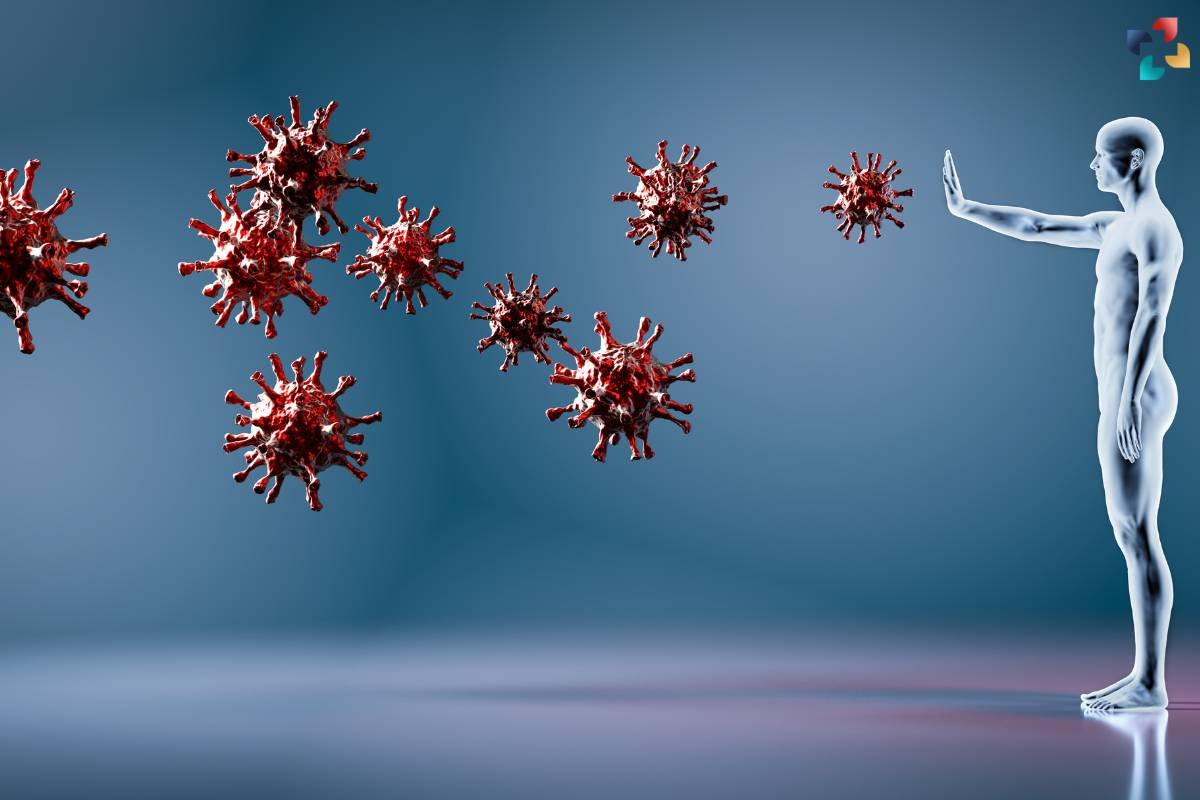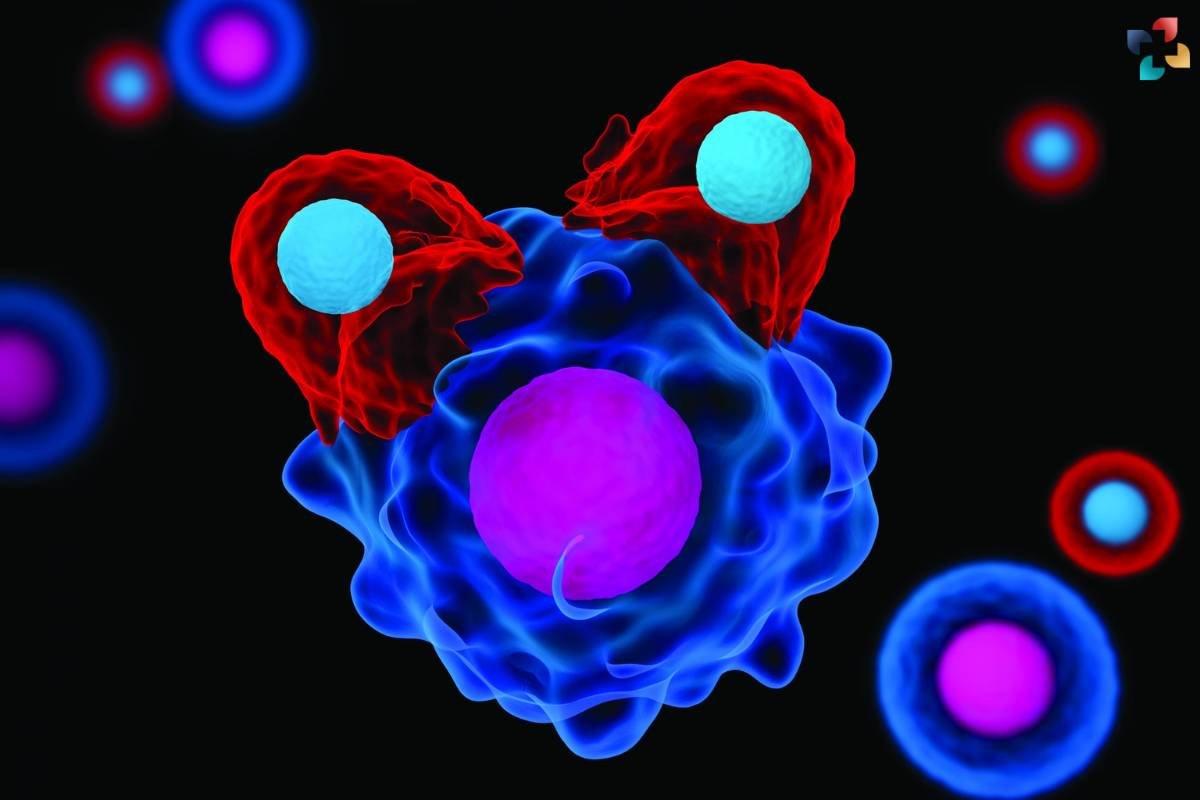Source- Bio Process International
Chimeric Antigen Receptor (CAR) T cell therapy has emerged as a revolutionary breakthrough in the unwavering pursuit of ground-breaking improvements in cancer treatment, providing patients with various forms of cancer with new hope. With previously unheard-of accuracy, this novel strategy uses the body’s immune system to fight cancer cells. We examine the complexities of CAR T cell therapy, its revolutionary effect on cancer treatment, and the encouraging advancements it has made in the field of oncology in this in-depth investigation.
Understanding CAR T Cell Therapy: A Molecular Symphony for Cancer Eradication
1. Defining CAR T Cell Therapy
Chimeric Antigen Receptor (CAR) T cell therapy is a form of immunotherapy that redefines the body’s natural defense mechanisms to target and destroy cancer cells. It involves genetically modifying a patient’s own T cells, the immune system’s warriors, to express chimeric antigen receptors on their surface.
2. The CAR Structure
At the heart of CAR T cell therapy lies the chimeric antigen receptor, a molecular construct engineered to recognize specific antigens present on the surface of cancer cells. This receptor comprises an extracellular domain for antigen recognition, a transmembrane domain for stability, and an intracellular domain that triggers T-cell activation upon binding to the targeted antigen.
3. Process of CAR T Cell Therapy
The journey of CAR T cell therapy begins with harvesting a patient’s T cells. These cells are then genetically modified in a laboratory setting to express the chimeric antigen receptor. The modified CAR T cells are subsequently expanded in number before being infused back into the patient. Once inside the body, these reprogrammed T cells seek out and destroy cancer cells bearing the targeted antigen.
CAR T Cell Therapy in Action: A Precision-guided Immune Assault
1. Targeting Hematologic Cancers
CAR T cell therapy has exhibited remarkable success in treating hematologic cancers, including leukemia and lymphoma. In particular, CD19-targeted CAR T cells have shown exceptional efficacy in eradicating B-cell malignancies.
2. Unleashing the Immune Arsenal

Once infused into the patient’s bloodstream, CAR T cells embark on a targeted mission. The chimeric antigen receptor enables these cells to recognize and lock onto cancer cells bearing the specified antigen. Upon binding, the CAR T cells unleash a potent immune response, destroying the cancerous cells with precision.
3. Overcoming Relapsed and Refractory Cases
One of the most significant contributions of CAR T cell therapy is its ability to address cases of relapsed or refractory cancer—instances where traditional treatments have proven ineffective. The therapy offers a lifeline to patients who have exhausted conventional options, providing a renewed chance for remission.
Key Advancements and Success Stories: Paving the Way to Hope
1. Groundbreaking Approvals
CAR T cell therapy has earned regulatory approvals for treating various hematologic cancers. Notably, therapies such as Kymriah and Yescarta, both CD19-targeted CAR T cell treatments, have secured approvals from regulatory bodies like the FDA, marking significant milestones in the field.
2. Success in Pediatric Cases

The success of CAR T cell therapy extends to pediatric oncology, where it has demonstrated positive outcomes in treating certain childhood cancers. The ability to tailor the therapy to specific antigens associated with pediatric malignancies highlights its versatility and potential in diverse patient populations.
3. Prolonged Remissions and Potential Cures
In some cases, CAR T cell therapy has resulted in prolonged remissions, with patients experiencing sustained freedom from cancer. The prospect of achieving not just treatment but potential cures underscores the transformative impact of this innovative approach.
Also Read: New Approaches to Operative Medicine in Cancer Treatment
Navigating Challenges and Optimizing Efficacy: The Road Ahead
1. Managing Cytokine Release Syndrome (CRS)
Despite its successes, CAR T cell therapy is not without challenges. Cytokine Release Syndrome (CRS), an immune system response that can lead to fever and flu-like symptoms, remains a concern. Ongoing research aims to refine strategies for managing CRS and minimizing its impact on patients.
2. Expanding Target Antigens
Current CAR T cell therapies predominantly target specific antigens, limiting their applicability to cancers expressing those markers. Efforts are underway to expand the repertoire of target antigens, broadening the scope of CAR T cell therapy to encompass a wider array of cancers.
3. Enhancing Durability of Responses
Sustaining the therapeutic effects of CAR T cell therapy over the long term is a focus of ongoing research. Strategies to enhance the durability of responses and prevent cancer relapse are critical in optimizing the long-term benefits of this innovative treatment.
The Future Landscape of Cancer Treatment: CAR T Cell Therapy’s Potential Impact
1. Personalized Medicine Paradigm
CAR T cell therapy embodies the principles of personalized medicine, tailoring treatment approaches to individual patients based on the unique characteristics of their cancer. This paradigm shift represents a departure from one-size-fits-all treatments and heralds a new era of precision oncology.
2. Expanding Beyond Hematologic Cancers
While current successes are notable in hematologic cancers, the potential of CAR T cell therapy extends beyond these domains. Ongoing research is exploring its applicability in solid tumors, ushering in a broader spectrum of cancer types that could benefit from this transformative approach.
3. Combination Therapies and Synergies

Researchers are actively exploring combination therapies that synergize CAR T cell therapy with other treatment modalities, such as checkpoint inhibitors and traditional chemotherapy. These approaches aim to amplify the immune response and maximize therapeutic outcomes.
The Human Element: Celebrating the Leaders in CAR T Cell Therapy
1. Visionary Pioneers
Behind the success of CAR T cell therapy are visionary leaders and researchers who have dedicated their careers to advancing this transformative field. These pioneers have played a pivotal role in bringing this revolutionary treatment from concept to reality.
2. Collaborative Endeavors
The collaborative efforts of scientists, clinicians, and pharmaceutical companies have been instrumental in driving the development and commercialization of CAR T cell therapies. These interdisciplinary collaborations underscore the collective commitment to advancing cancer treatment.
Conclusion: A Bright Horizon for Cancer Patients
Chimeric Antigen Receptor (CAR) T cell therapy is a ray of hope in the field of cancer treatment, showing the way towards more efficient, focused, and customized methods of battling this difficult illness. The future of CAR T cell treatment is quite promising, provided that research is continued, technological improvements are made, and obstacles are overcome. The path to beating cancer continues despite our celebration of the victories thus far, thanks in large part to the game-changing potential of CAR T cell treatment and the steadfast commitment of those leading this medical revolution.








